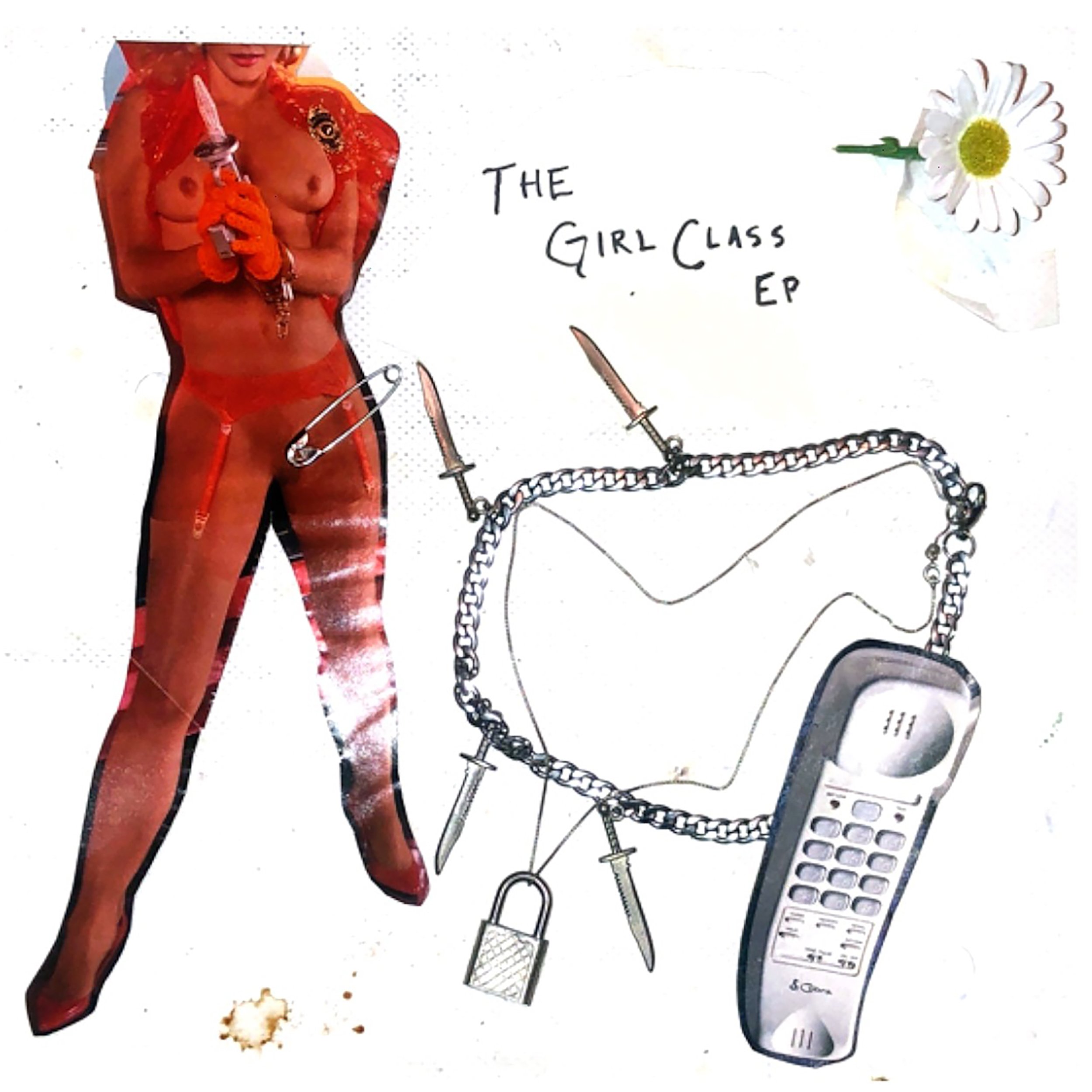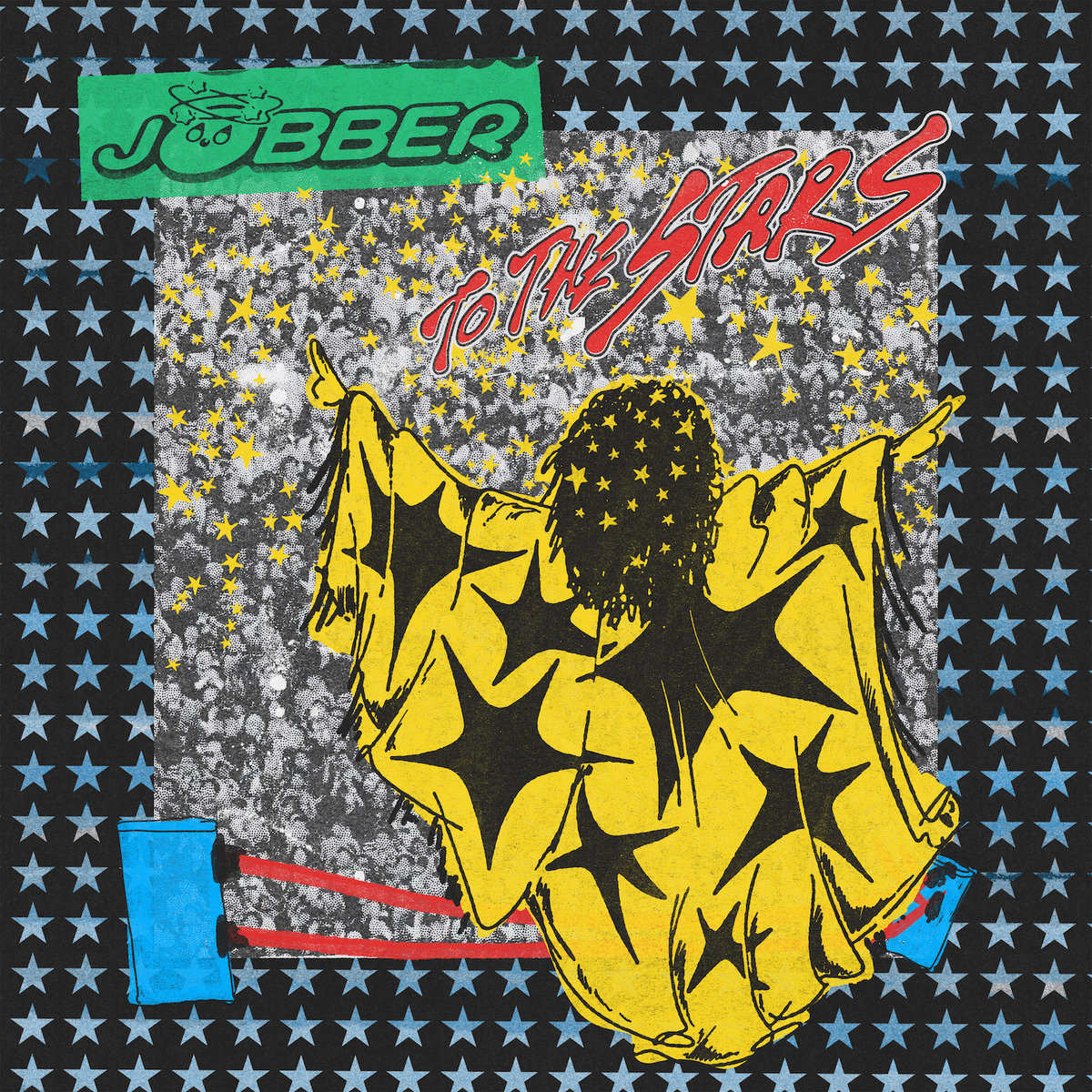Um, Jennifer? – The Girl Class | EP Review
/Final Girl Records
It’s an unspoken rule that if you are a queer person who wants to be taken seriously as a purveyor of modern rock music, you should be miserable. It doesn’t necessarily have to be abject misery: melancholy, disaffection, and unrequited longing will suffice. This was as true of Melissa Etheridge’s wailing lamentations that she’s “the only one who’ll drown in [her] desire for you” in 1993, down to the three boys genius combining the strength of their collective ennui to Grammy-winning success more recently. From Tegan & Sara, to Perfume Genius, to Girlpool, and Ethel Cain, this much is true: to succeed as a queer rock musician, you must be willing to bleed.
I’m hopeful, dear reader, that you can not only recognize hyperbole but forgive it as well.
To say there has never been a happy queer rock act would be patently untrue. One of the very first rock stars, queer or otherwise, was Little Richard, who built his career on frenetic party bangers. Classic rock stalwarts Elton John and Freddie Mercury famously brought queer joie de vivre to everything they ever did. Even Rob Halford has a sort of playfulness–at least, as much playfulness as his subgenre allows for. But listening to Um, Jennifer’s new EP, The Girl Class, had me wondering when the last time I heard a rock band be this queer and this effervescent at the same time.
“Girl Class,” the title track, opens the EP with a throwback to late 90s/early 00s alternative rock: the answering machine message–not just an answering machine message, but the dialing of a rotary phone (in this, the year of our lord, two-thousand-and-twenty-four) that goes DIRECTLY to the machine after one ring.
I’m packing my bags for Camp Nostalgia.
I love this motif, and it’s used to great effect. Our singer, Fig, introduces themself and delivers the thesis statement of the song to the person they’re calling: “I’m having a lot of trouble being a girl, and you’re really good at being a girl, and I was wondering if you wanted to hang out, or we could get coffee or something, or whatever, yeah, give me a call back.” What follows is an ode to friendship and self-acceptance that concludes with actual, fool-proof instructions on how to be a girl: “Step 1: say you’re a girl; Step 2: you are a girl.”
On “Glamor Girl,” our second vocalist, Eli, moves in a different direction. They take an outside perspective on how a devastatingly sexy lady is driving them crazy and ruining their life. This theme continues with a later track, “Cut Me Open,” where Eli addresses someone who has them consumed with desire to the point that they want to be torn open and cannibalized by them: a universal experience I’m sure we can all relate to.
Something I really like about this band is the salty/sweet dynamic between the two singers. Eli’s songs are characterized by a frank and expressive discussion of sexuality, while Fig’s are more whimsical. For example, in “Jazz Machine,” Fig describes their paramour as a sort of fabulous intergalactic entity, a “roller rink jazz machine,” and still somehow very human, with insecurities and an absolutely filthy bedroom.
Photo by Avery Davis
The unifying factor between these two collaborators seems to be a willingness to just let things be fun and unserious. In fact, one could say that the overarching theme for this collection of songs is affirming the things that make you feel insecure don’t have to be the end of the world unless you treat them that way.
It's this sense of levity that really distinguishes Um, Jennifer from other, perhaps more established artists talking about their queer experience. Their willingness to say, “I’m not feeling all that great about myself, and I’m painfully horny,” while treating that like a hilarious anecdote, really sets them apart from queer singer/songwriters who would say the same thing and treat it as a dirge. Not to diminish either method, both are valid, but the lighthearted approach makes them feel distinct in the moodier musical landscape of 2024.
It also goes without saying that being witty and self-effacing is just naturally more inviting. It makes people want to like you and want to relate to you. Um, Jennifer is extremely charming in this way. This is a band that pitched the release party for this EP as “an exhilarating night of trans slut rock,” further describing the theme as “inspired by Jennifer’s Body - blood, guts, and being really hot.” I don’t know about you, but that sounds like my kind of party: they sound like the kind of people I want to be friends with, and I think this approach will win them many fans.
When it comes down to it, it’s no secret that we, as queer people, often face a lot of harrowing circumstances, a lot of sadness, and a lot of loneliness and inner turmoil. Likewise, it’s a well-documented fact that channeling hardship into creativity can generate powerful works of art. I think it speaks volumes about the way we're feeling in the current political climate that so many queer musicians are writing tons of sad songs. I think it’s important to acknowledge this. But I also think it’s important to see the joy in your queerness, to find the humor in it, and to celebrate it. So, in that way, I think we have really needed a band like this loud, funny, over-the-top duo of trans kids from Brooklyn to remind us that it’s okay to let loose and be ridiculous every once in a while.
Brad Walker is a writer, comedian, and storyteller from Columbus, Ohio. Find him on the World Wide Web:@bradurdaynightlive on Instagram and@bradurdaynightlive.bsky.social on Bluesky.











